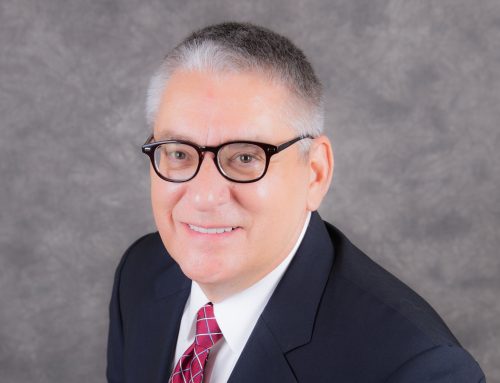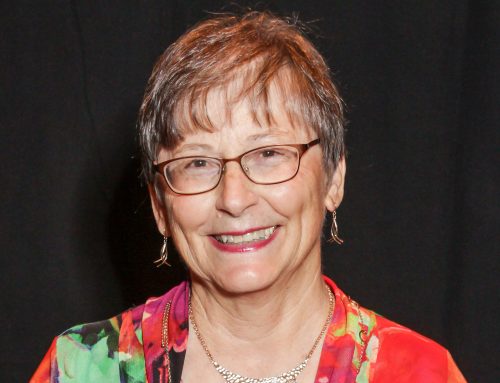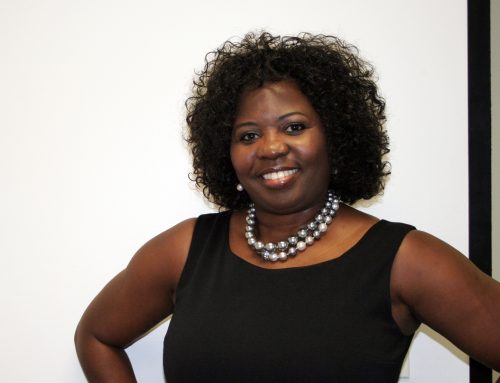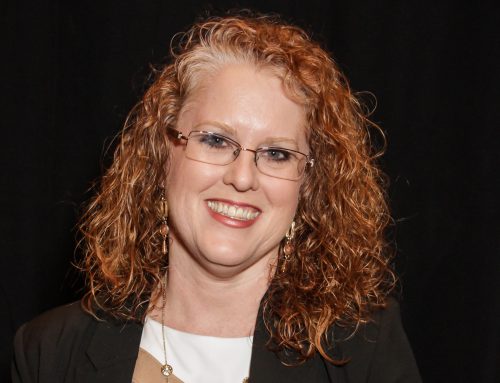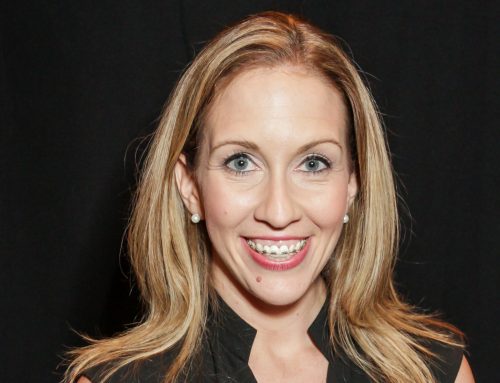2015 Gold Medalist ~ Nursing Administration and Leadership
Roxanne Blackburn, MSN, RN, OCN, The University of Texas MD Anderson Cancer Center
The first person in her family to attend college, Roxanne Blackburn has been a nurse for almost 40 years. After graduating from St. Mary’s Junior College in Minneapolis-St. Paul in 1974 as an associate degree nurse, she accepted a position in the OR at a local hospital. Uncomfortable with attitudes toward women in the early days of the women’s movement, she joined the Peace Corps and spent two years in Guatemala working with women, teaching health, and serving the community. When she returned to the United States, she moved to Houston with friends, got married, had children, and found MD Anderson, which changed the trajectory of her career.
As a child, cancer was a part of Roxanne’s life. “When I was a year old, my father had cancer of the larynx and underwent a radical neck dissection and laryngectomy,” she says. “He became the first president of the Lost Chord Club in the Twin Cities so I was surrounded by former cancer patients who had had laryngectomies. At the time I considered this pretty normal. When I came to MD Anderson, it dawned on me that oncology nursing was exactly what I needed to be doing. I already had tremendous insight into the way cancer changes lives.”
Roxanne began her career at MD Anderson as a clinical nurse in 1980 and has been promoted three times – to assistant nurse manager, associate director of a 72-bed inpatient stem cell transplant unit, and most recently to director of the hospital’s 240-bed Inpatient Hematology Services.
“Most of our patients are plucked from a life in which everything is going fine,” she says. Caring for people at this crisis point changes you. I don’t believe there’s a day, even my very worst day, when my patients wouldn’t trade my problems for theirs. Working with cancer patients gives you the opportunity to watch people at their worse being their best. I’m always amazed when people can move through these challenges with grace and courage.”
During her years at MD Anderson, Roxanne continued her formal education, earning a Bachelor of Arts at the University of Houston in 1992, a Bachelor of Science in Nursing at The University of Texas at Arlington in 2010, and a Master of Science at the same institution in 2013. At the same time, she worked closely with interdisciplinary staff members from throughout MD Anderson, initiating and facilitating projects that resulted in improvement in Press Ganey and HCAHPS top-box scores from the 60th to the 90th percentile in nurse communication, physician communication, responsiveness, and pain management. The hospital’s Patient Experience Committee commended her for exemplary work and for serving as a resource to her colleagues. As chair of a Nursing Practice Congress PACT, she developed a comprehensive online resource for staff caring for patients and their families at the end of life.
“Roxy is a strong change agent who consistently works at developing new initiatives to improve unit and institutional processes, contributing to evidence-based practice procedures and striving for excellence,” wrote her nominator Kelly Brassil, PhD, RN, AOCNS, ACNS-BC, CNL, director of nursing research and innovation at MD Anderson. “She is recognized as both an outstanding leader and a dedicated, hardworking oncology healthcare provider. She is best known for her ability to accept challenges and professionally question directives to ensure that they are in the best interests of both patients and staff. She leads with courage and a fearlessness that empowers her to question the status quo and to address leadership challenges in an innovative manner.”
Roxanne views the sharing of her expertise, experience, and knowledge with peers as integral to her role as a professional nurse. She has made educational presentations at institutional, local, national, and international conferences, and her research has been published in the Clinical Journal of Oncology Nursing, Biology of Blood and Marrow Transplantation, Oncology Nursing Forum, and Computers Informatics Nursing. She is the coauthor of a book chapter entitled “Disease Treated with Peripheral Stem Cell Transplantation” in Stem Cell Transplant: A Clinical Textbook. Roxanne received The University of Texas MD Anderson Nursing Excellence Award in Leadership in May 2015 and the Outstanding Performance in Nursing Award from Texas Nurses Association, District #9 in 2009.
“The best part of being a nurse is knowing that every single day you make a difference,” she says. “The act of caring is so basic to the human experience, and as nurses we have this great opportunity to feel that reward every single day. When I left bedside nursing, I was afraid I would lose that feeling of making such a difference but I found I was wrong – leadership lets you do that tenfold because you take nurses at all levels of their careers and help them find their identity, develop their practice, develop their skills, and encourage them to publish and share their research and knowledge at conferences. It’s really a wonderful opportunity.”
In spite of this, she describes leadership as one of the hardest things she’s ever done. “Getting this award from the Good Samaritan Foundation in leadership is such an honor because leadership is an area I find so challenging,” she says. “Every day I wonder if I did the right thing, if I handled a situation in the right way. I love being a bedside nurse and was good at it. Leadership is about self-reflection and taking feedback and taking all those qualities someone saw in you and moving them to the next level. It’s a challenge every single day. This award is really an affirmation for me.”
To young nurses coming into the profession she says, “Nursing is by far and away the best choice you could ever make. There is nothing but opportunity ahead. The wonderful thing about nursing is you can go in so many directions for the rest of your life and still follow your personal passions. I was a research nurse, a discharge-planning nurse, and a Peace Corps volunteer. I worked as a floor nurse, and I worked in education. I took jobs that met my personal needs at the time – nursing affords you that opportunity. Every one of those jobs was fun and exciting and different, maybe not what I wanted to do for the rest of my life but they were incredible opportunities. Healthcare in the 21st century is undergoing tremendous change, and nurses are at the forefront.”
